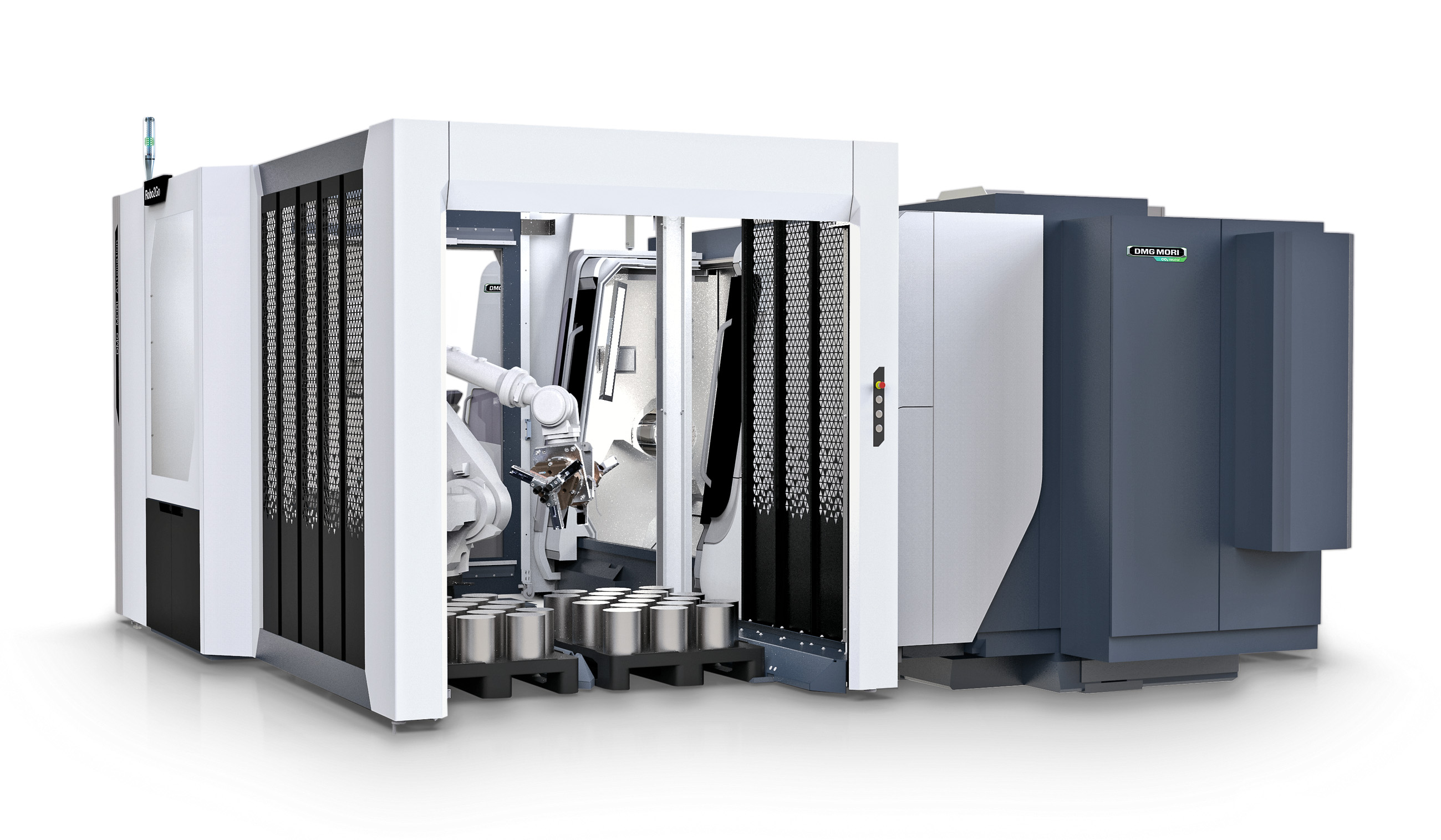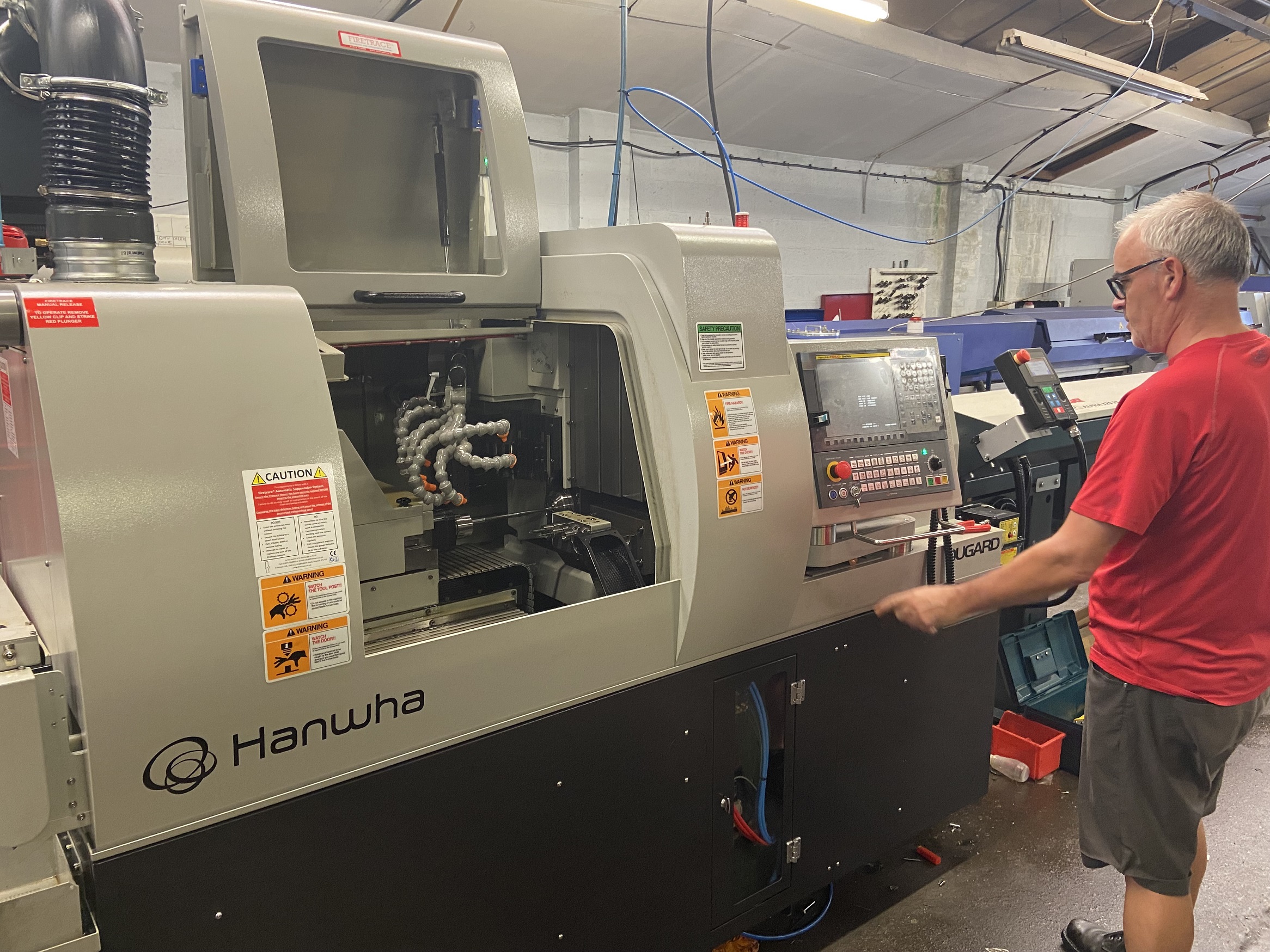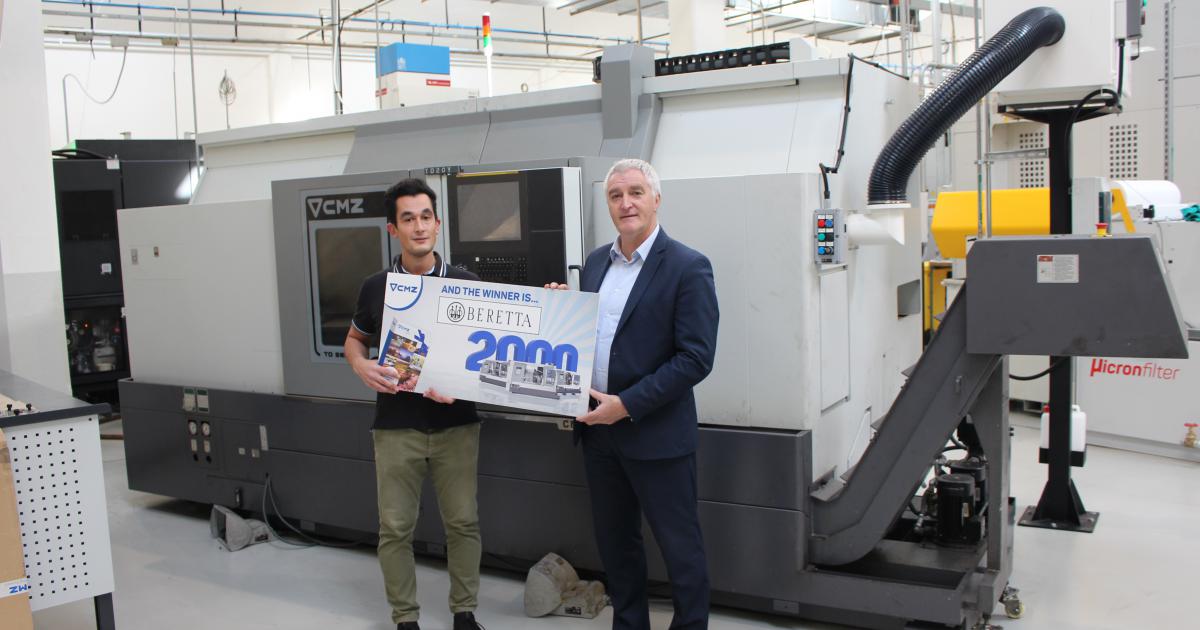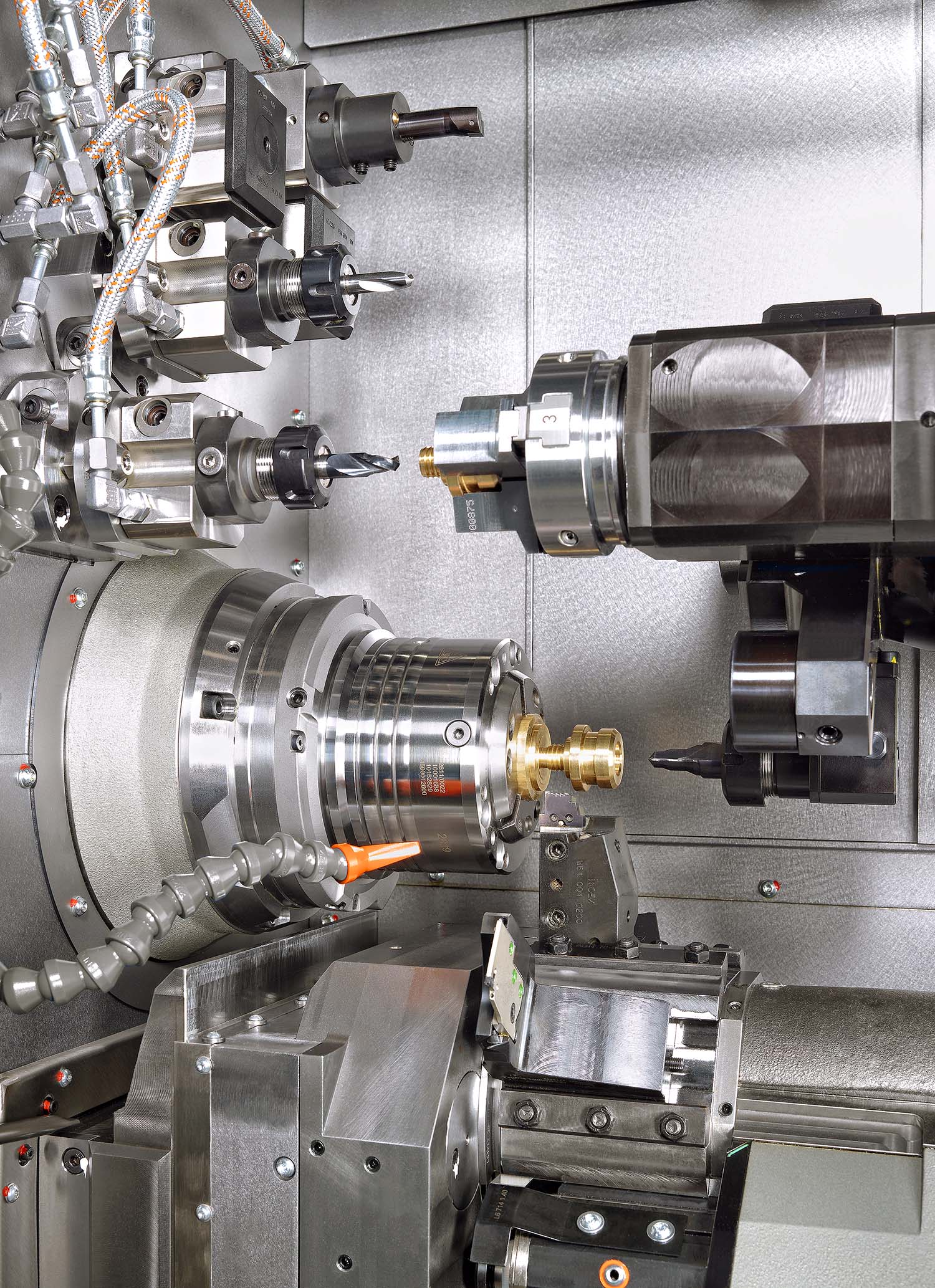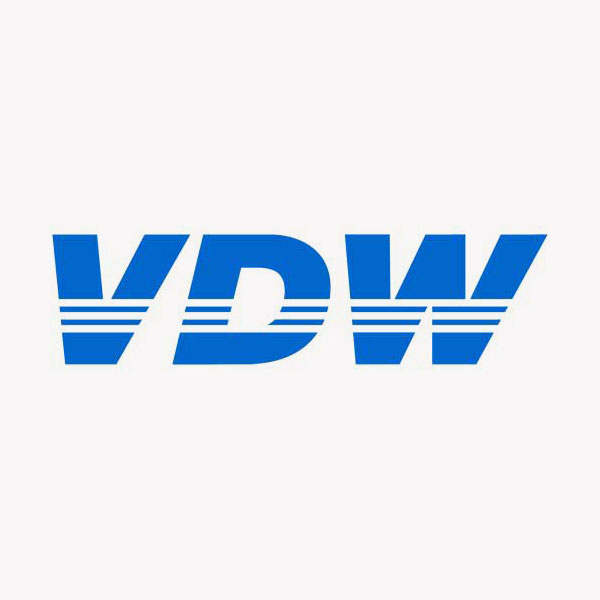Occupying a footprint of only 12.5 sq m, the new Robo2Go Max from DMG Mori allows the easy and flexible automation of large lathes and turn-mill centres. The robotic system handles workpieces from 40 to 400 mm in diameter and weighing up to 115 kg – the maximum payload including gripper being 210 kg.
Robo2Go Max is based on a six-axis industrial robot housed in a safety enclosure that also contains a workpiece storage module. In the basic version, it can be loaded and unloaded quickly with two Euro pallets via a roller shutter door, either by forklift truck or by a DMG Mori driverless PH-AGV automated guided vehicle. Alternatively, users can wheel workpieces in and out on trolleys.
A vision system is available to detect the position of raw material and finished parts on the pallets. The system offers space for additional options such as alignment and turnover stations, which means that users can produce even the most complex workpieces autonomously.
A modular gripper provides flexibility in terms of handling a wide diversity of components. Regardless of the Robo2Go Max configuration, the control system and tool magazine of the respective turning centre remain freely accessible.
As with the smaller Robo2Go Turning, no robot programming knowledge is required to set up and operate the larger system. For uniform control of Robo2Go variants, DMG Mori has developed its own app that enables the creation of a production process based on predefined program blocks. The app has a multi-job function to allow placement of different components on one pallet or tray, suitable for producing small and medium batch sizes.
For further information www.dmgmori.com






